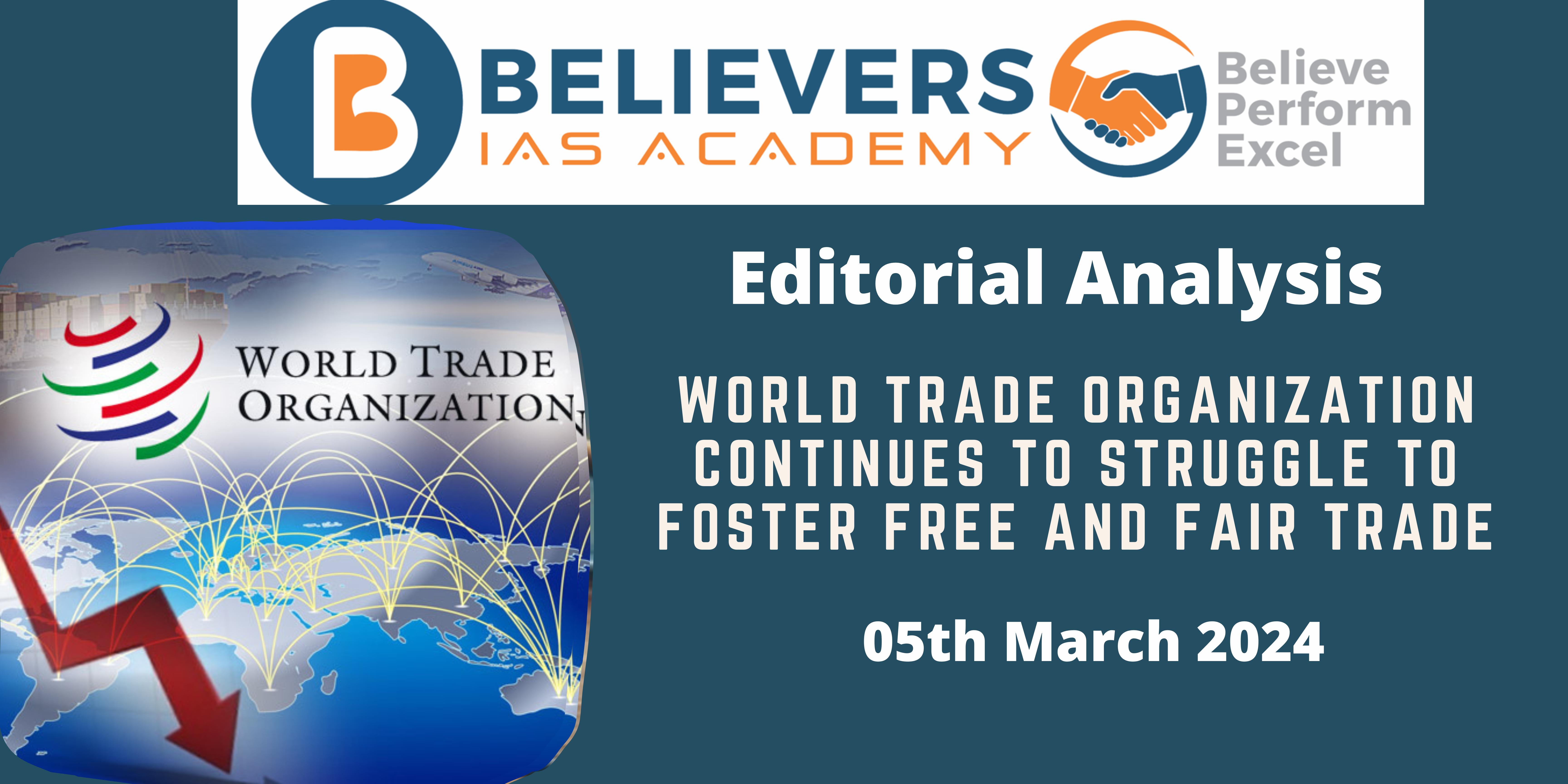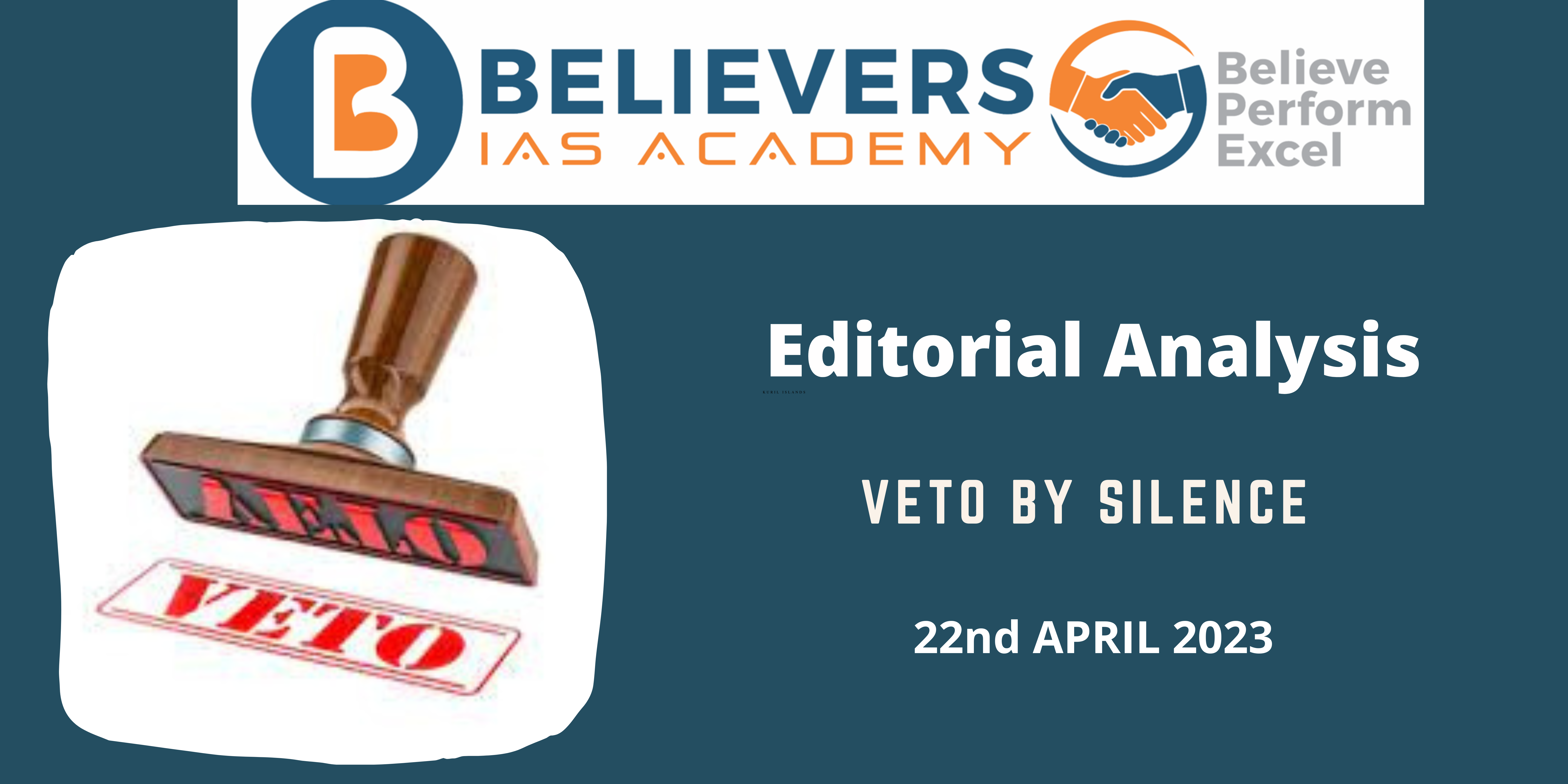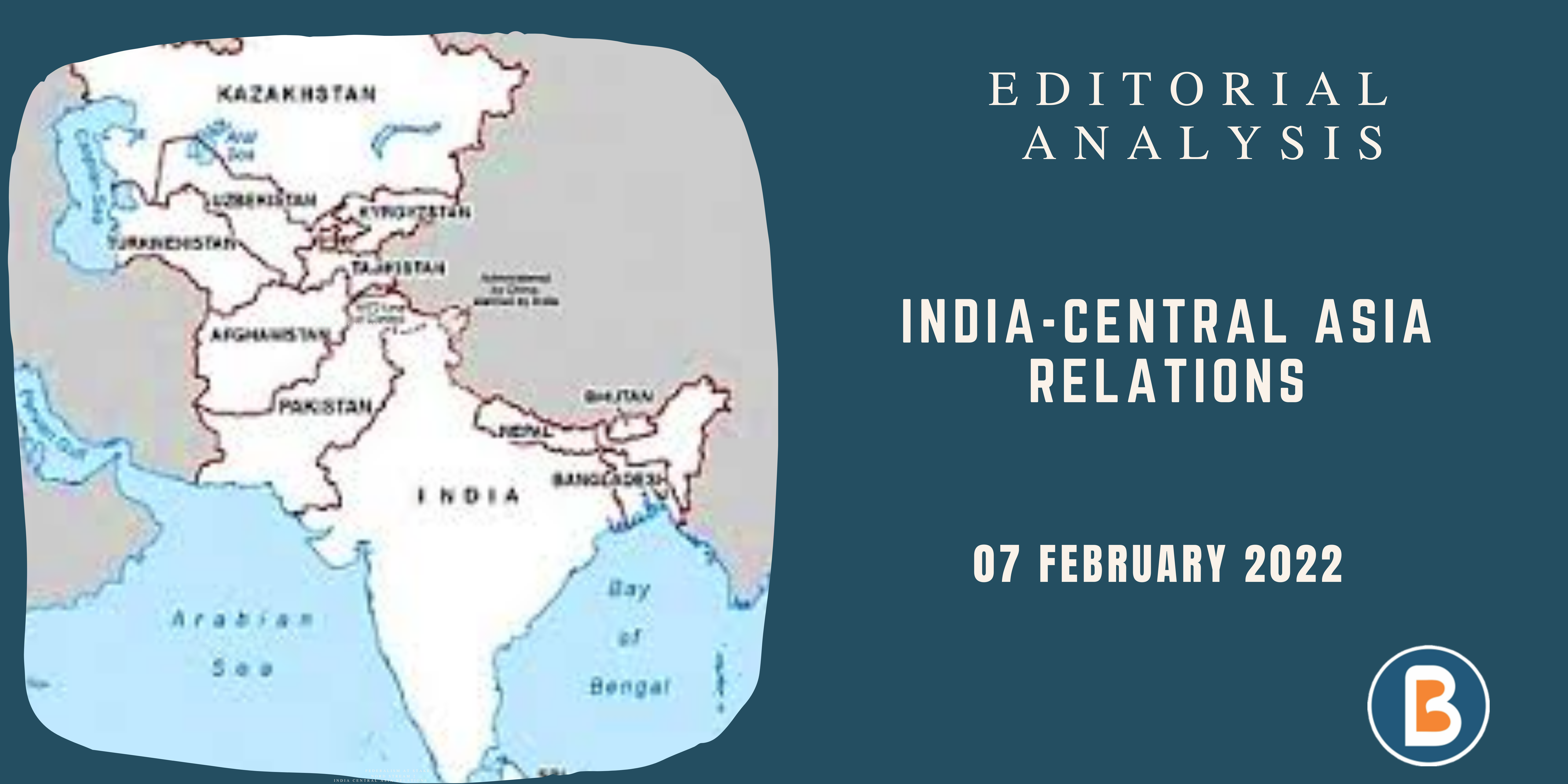World Trade Organization continues to struggle to foster free and fair trade
Context:
The recent World Trade Organization (WTO) Ministerial Conference in Abu Dhabi saw limited progress on critical global trade issues.
Relevance:
GS-03 (Economy)
Mains Question:
Discuss the challenges faced by the World Trade Organization (WTO) in fostering free and fair trade in the current global landscape. (250 words)
Key highlights:
- Challenges such as conflicts, disruptions in shipment routes, and isolationist trade policies have hindered the WTO’s effectiveness.
- Divergences among member countries persist on key issues, including agriculture and e-commerce.
- The WTO’s dispute resolution body remains defunct, posing challenges to resolving trade disputes.
World Trade Organization (WTO):
- Definition: The WTO is the primary global organization responsible for regulating trade relations among nations, with a focus on establishing trade rules and resolving disputes.
- Membership: Currently, the WTO comprises 164 member countries, including the European Union, along with 23 observer governments such as Iran, Iraq, and Bhutan.
Goals of WTO:
- Lower Trade Barriers: The WTO aims to reduce trade barriers globally through negotiations, promoting non-discrimination in trade practices.
- Economic Benefits: By reducing production costs, prices of goods and services become more affordable, offering consumers greater choice and improving overall living standards.
- Dispute Settlement: The WTO facilitates dispute resolution among member nations, ensuring compliance with agreed-upon trade rules.
- Economic Growth and Employment: The WTO seeks to stimulate economic growth and increase employment opportunities worldwide.
- Cost Reduction: Through standardized trade practices, the WTO aims to reduce the cost of conducting international business.
- Good Governance: Transparency and adherence to established rules promote good governance, reducing corruption and fostering fair trade practices.
- Development Support: The WTO recognizes the potential of open trade to drive economic growth and development, particularly in developing countries.
- Empowering Small Nations: By providing a platform for consensus decision-making and coalition building, the WTO amplifies the voices of smaller and developing nations in global trade negotiations.
- Environmental and Health Considerations: WTO agreements aim to align trade policies with environmental and health objectives, ensuring trade practices support a clean and safe environment.
- Promotion of Peace and Stability: By establishing predictable trade policies and discouraging protectionist measures, the WTO contributes to global economic stability and fosters confidence among nations.
Dimensions of the Article:
- Challenges Faced by the WTO
- Persistent Divergences Among Member Countries
- Challenges in E-commerce and Dispute Resolution
- India’s Role and Policy Priorities
Challenges Faced by the WTO:
- The World Trade Organization (WTO) continues to grapple with significant challenges in fostering free and fair trade on a global scale.
- The recent Ministerial Conference in Abu Dhabi failed to make substantial headway on crucial issues despite extended deliberations.
- This stagnation underscores the growing complexities and divisions within the global trading system.
Persistent Divergences Among Member Countries:
- Divergences among the WTO’s 164 member countries persist on various issues carried forward from previous conferences. Of particular concern to India are matters related to agriculture, such as finding a permanent solution for public stock holding to ensure domestic food security.
- Despite ongoing discussions spanning over two decades, concrete progress remains elusive, highlighting the difficulty in reaching consensus among member states.
Challenges in E-commerce and Dispute Resolution:
- Additionally, challenges in areas like e-commerce and dispute resolution further undermine the WTO’s effectiveness.
- While India sought an end to exemptions from customs duties for e-commerce, concerns over their adverse impact on countries’ revenues led to their extension for at least two more years.
- Moreover, the WTO’s dispute resolution body, vital for resolving trade disputes, remains defunct, posing significant challenges to enforcing trade rules and agreements.
India’s Role and Policy Priorities:
- India played a crucial role in thwarting attempts to introduce an investment facilitation pact into the WTO framework, underscoring its commitment to safeguarding policy space for sensitive sectors like agriculture.
- Moving forward, India must intensify efforts to address its policy priorities within the WTO framework, especially in safeguarding the interests of its agricultural sector.
Way Forward:
- The WTO faces a daunting task in navigating the complex landscape of global trade amid increasing polarization and protectionism.
- To stay relevant, the WTO must address critical challenges such as resolving disputes, advancing negotiations on key issues, and adapting to evolving trade dynamics.
- Member countries, including India, must engage constructively to revitalize the WTO and ensure that it remains an effective platform for promoting open and inclusive trade.




